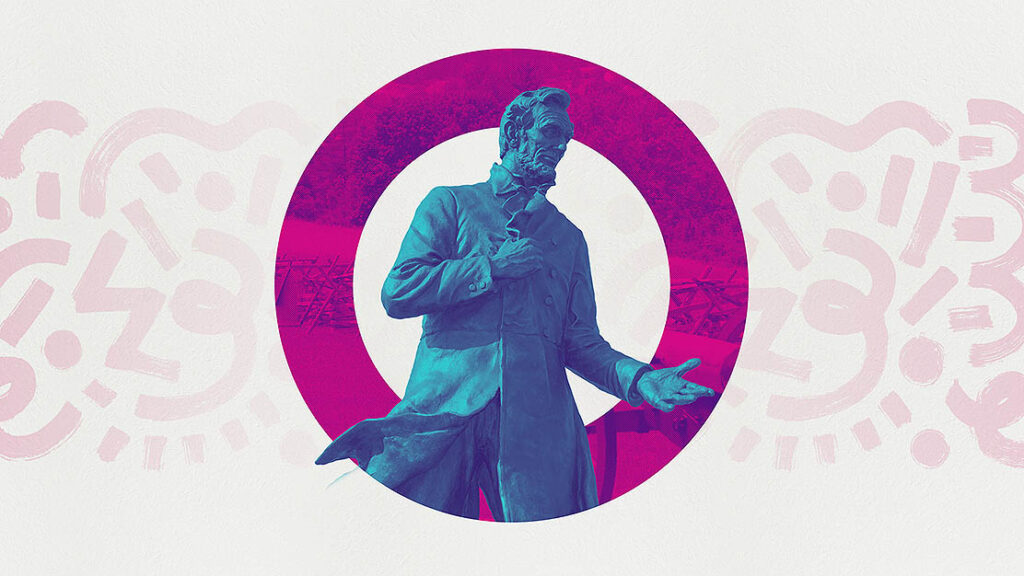
ADRIAN — The Adrian Symphony Orchestra’s season-long exploration of the music of Aaron Copland comes to a close in early May with a performance of two works by that composer: “A Lincoln Portrait” and a considerably lesser-known piece that’s also by far his shortest composition, “Jubilee Variation.”
Also on the program, in keeping with the ASO’s tradition of closing out the orchestral-music portion of its season with a major work, is Haydn’s “Missa in tempore belli” (“Mass in Time of War”), which became known — for reasons that quickly become apparent in the music — as “Paukenmesse,” or the “Timpani Mass.”
The concert is at 7:30 p.m. Friday, May 2, at Adrian College’s Dawson Auditorium. A free pre-concert Classical Conversation with ASO Music Director Bruce Anthony Kiesling begins at 6:40 p.m. in the auditorium.
Tickets are $39/$33/$25, with discounted rates of $37/$31/$25 for senior citizens and $20/$17/$13 for students, and are available at www.adriansymphony.org; by calling 517-264-3121; at the ASO office in Mahan Hall, Adrian College, from 9 a.m. to 5 p.m. Mondays through Fridays; or at the door beginning two hours prior to the concert.
Copland wrote “A Lincoln Portrait” in 1942 on a commission by conductor Andre Kostelanetz. It was premiered that year by the Cincinnati Symphony.
The piece incorporates excerpts of several of Lincoln’s speeches including the Gettysburg Address, read by a narrator.
For the May 2 concert, however, Kiesling decided to use not one but two narrators. Those roles will be filled by Dorian Hall and LaVonte Heard, both of whom have sung with the orchestra previously at its holiday concerts.
“I’ve never seen it done with two narrators,” Kiesling said. But he thought Hall and Heard together would bring real presence to the narration, and “I thought it’d be powerful to have an echo effect. It will heighten the power of an already powerful text.
“It’s an experiment, but I think it’ll have a huge payoff.”
Heard, he said, “has a wonderful presence and I’m sure he’s going to knock it out of the park,” while Hall “has this voice that just fills a room.”
Heard and Hall will also be the tenor and bass soloists, respectively, for “Paukenmesse,” joined by soprano Catherine Goode and mezzo-soprano Kristin Clark, who in addition to maintaining a busy professional singing career is also a member of the Adrian College music faculty.
The choral forces for this work will be provided by the Adrian College Choir and the men’s vocal group Chiaroscuro.
“Paukenmesse” was written in 1796 when Austria and other countries were battling Napoleon’s forces, hence its formal title “Mass in Time of War.”
Kiesling described the work as “fiery,” with lots of trumpet and, as the piece’s more common title implies, a prominent, pivotal role for the timpani.
“I’ve always really enjoyed this one,” he said, and this performance will actually be the first time he’s conducted it.
Haydn wrote 14 Mass settings in all, this one being his 10th and one of his best known. The next one in sequence, which became known as the “Nelson Mass” in honor of the British admiral who defeated Napoleon, “is done a lot,” Kiesling said, “so I thought this one would be nice to have.”
Before both “Lincoln Portrait” and “Paukenmesse” on the concert program, however, comes Copland’s “Jubilee Variation.”
Written in 1945 and premiered that same year, it was commissioned by the Cincinnati Symphony for its golden jubilee.
“It’s a nice little opener,” Kiesling said — and the key word there is “little.”
Clocking in at a mere minute and a half long, it’s the shortest thing Copland ever wrote. But it packs plenty into that 90 or so seconds. “There’s lots of rhythm and energy” in it, Kiesling said.
“It smacks of American optimism and it’s very Copland-esque.”
As the ASO’s orchestral season closes out — although there’s one more concert, a June 6 Neil Diamond tribute concert by the group Nearly Diamond, in the actual season — Kiesling said he’s very satisfied with a season spent focusing on Copland’s music.
“I think it’s been really great,” Kiesling said of this year. “I’m pleased with the season and we’ve really introduced Copland to a lot of people.”
He especially likes the fact that, by programming the full versions of Copland’s ballet scores — “Billy the Kid,” “Rodeo,” and “Appalachian Spring” — rather than the suites the composer created out of that music, audience members got to hear some parts of those scores they’d likely never heard before. And he thinks performing the full scores is actually more effective as a concert experience.
It’s the second time in two seasons that the orchestra has done such an extensive exploration of one composer’s music. Last season, Stravinsky got the same treatment, and Kiesling said it’s been fun to be able to explore specific composers in this season-long way.
“With a year of Stravinsky and now Copland, our audience has really heard some great music,” Kiesling said. “And they’ve now heard the great ballets of the 20th century.”

